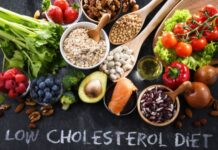Affiliate Disclaimer
Some links in this article are affiliate links. We may earn a small commission if you make a purchase through these links, at no extra cost to you. We only recommend products we find useful to our readersOysters are a favorite among seafood lovers worldwide because of their distinctive flavor and versatility in the kitchen. They are found everywhere from high-end restaurants to beach shacks, a testament to their versatility. Oysters are more than a delectable delicacy because of their astonishing health benefits, which go beyond their culinary appeal. Packed with vital minerals, they have several advantages for general health.
The top ten health benefits of oysters are discussed in this article, and they include strengthening the immune system, encouraging heart health, improving brain function, helping with weight loss, improving bone health, increasing energy, improving skin health, supporting good vision, and supporting reproductive health. Explore the reasons why adding oysters to your diet could revolutionize your well-being.
Nutritional Profile of Oysters
Regarding nutrition, oysters are a nutritional powerhouse since they provide an astounding variety of critical nutrients that significantly contribute to overall health. This means that each serving of oysters contains a significant amount of high-quality protein, essential for the growth and repair of muscle tissue. They are especially rich in specific vitamins, such as vitamin B12, which is vital for neurological function and the generation of the red blood cells, and vitamin D, which is very essential for maintaining bone health and supporting the immune system.
In addition, oysters are loaded with a variety of minerals, such as zinc, which is essential for the functioning of the immune system and the healing of wounds; iron, which is necessary for the transportation of oxygen throughout the bloodstream; and selenium, which is a potent antioxidant that safeguards cells against harm. In addition, they are an excellent source of omega-3 fatty acids, which are also well-known for their preventative effects on the cardiovascular system. Oysters are a fantastic alternative for individuals trying to increase their nutritional intake and enhance their overall health because of the nutrients they contain.
10 Major Health Benefits of Oysters
Oysters are loaded with vitamins and minerals.
1. Strengths Blood Vessels:

Your circulatory system can greatly benefit greatly from the consumption of oysters. The combination of minerals they provide, including zinc, vitamin B12, and omega-3 fatty acids, is quite remarkable. Zinc helps to maintain the flexibility of the walls of blood vessels. At the same time, vitamin B12 contributes to the production of red blood cells, which are also responsible for transporting oxygen throughout the body. Omega-3 fatty acids also help promote healthy blood flow and reduce inflammation.
Also, read: How to Manage Chronic Blood Clotting Disorders
2. Boosts Immune System:

The ability of oysters to strengthen the immune system is among the most remarkable advantages of eating oysters. When it comes to zinc content, they are the champions. Zinc is a mineral that is essential for normal functioning of the white blood cells, which are your body’s protective troops against infections.
Also, read: Belly Fat Affects Your Immune System, New Study Suggests
3. Promotes Heart Health:

Omega-3 fatty acids are a type of fat praised for their heart-protective effects, and oysters are a rich source of these crucial fatty acids. It is necessary to receive these essential fats through diet because the body cannot create them independently. Among the many factors that contribute to heart disease is chronic inflammation.
The potent anti-inflammatory capabilities of omega-3 fatty acids can assist in the reduction of the inflammation in the blood vessels, thereby reducing the likelihood of plaque accumulation and issues related to the heart. There is a seesaw effect that omega-3s have on cholesterol. They promote a reduction in LDL cholesterol levels, also known as the “bad” cholesterol that adheres to the walls of arteries.
On the other hand, they can potentially bring about a slight elevation in HDL cholesterol, which is the “good” cholesterol that eliminates LDL cholesterol from the system. This positive shift in the cholesterol profile significantly decreases the risk of developing cardiovascular disease. Omega-3 fatty acids can prevent blood platelets from clumping together in an excessive manner, ultimately forming blood clots that obstruct arteries and cause heart attacks. They do this by facilitating a more fluid flow of blood, which helps ensure your heart obtains the oxygen-rich blood required to perform at its best.
Also, read: 7 Low-Carb Dinner Recipes For A Healthy Heart
4. Enhances Brain Function:

This vital vitamin facilitates efficient communication between nerve cells by acting as a conductor in an orchestra. It is essential for the fatty sheath known as myelin to form, which protects nerves and facilitates faster signal transmission. Improved concentration, memory, and reasoning skills correlate with stronger nerve signals.
The building blocks for neurotransmitters, chemical messengers that transfer information between brain cells, are abundant in oysters. Dopamine aids with memory, mood management, and learning. It is produced in part by vitamin B12.
Additionally, they aid in synthesising acetylcholine, a neurotransmitter essential for concentration, memory, and general cognitive function. These necessary fats function as brain food. Studies have linked omega-3 fatty acids to enhanced learning, memory, and focus. They also help prevent age-related brain disorders and cognitive loss.
Related Articles:
- Brain-Boosting Avocado & Berry Smoothie: Fuel Your Mind
- 6 Best Vitamins To Improve Your Brain Health
5. Supports Weight Loss:

Do you want to understand how to keep your weight under control? They have a low number of calories but a significant protein level, making you feel more satisfied. It, in turn, lessens the desire to eat, which in turn helps you manage your weight and maintain a healthy weight.
Also, read: 18 Food Swaps For Weight Loss – Switch To A Sustainable Life
6. Improves Bone Health:

The elements calcium, phosphorus, and vitamin D, which are all essential for the development and maintenance of strong bones, may be found in abundance in oysters, making them particularly beneficial. While calcium is the fundamental component of bones, phosphorus is responsible for their strength, and vitamin D plays a role in calcium absorption.
7. Boosts Energy Levels:

Oysters help you fight off lethargy and stay invigorated all day long! They are an organic supply of iron, a necessary mineral for the synthesis of red blood cells. Red blood cells transport oxygen throughout your bloodstream to provide your cells with energy. A low iron level prevents your red blood cells from carrying oxygen efficiently, which makes you feel sluggish and exhausted.
Another important participant in the energy game is vitamin B12, which oysters are a rich source of. Energy metabolism is how your body turns food into usable energy; vitamin B12 is essential to this process. Ensuring your body gets enough B12 will help it work at its peak, giving you energy and readiness for the day. Therefore, the next time you’re feeling low, consider adding oysters to your diet for a tasty and natural energy boost!
8. Enhances Skin Health:

Antioxidants are formidable soldiers that fight against free radicals, and oysters are a treasure trove of antioxidants that nature has brought to us. In your body, free radicals are unstable molecules that roam around, wreaking havoc on your cells. Unfortunately, your skin cells are not immune to the effects of free radicals. This damage results in wrinkles and fine lines; however, oysters come into play!
The consumption of oysters provides your body with a plethora of antioxidants, which is why you should include them in your diet. To prevent free radicals from causing damage to your skin cells, these antioxidants neutralize them, which helps to maintain your skin’s health, suppleness, and radiant appearance. Therefore, go ahead and indulge in some oysters and let your inner mermaid shine through; your skin will be grateful to you for doing so.
9. Promotes Healthy Eyesight:

When you eat oysters, they stimulate your taste senses and can also improve your eyesight. They contain zinc, which is essential for appropriate eye function, as well as vitamin A, which is a component that helps maintain good eyesight and protects against night blindness. Both of these substances are found in these products.
10. Aids in Reproductive Health:

Oysters have long been thought to be aphrodisiacs, and science is beginning to explain why. These delicious shellfish are loaded with vital nutrients that can significantly improve men’s and women’s reproductive health. Zinc is the star nutrient in oysters. This mineral is crucial in creating sperm and testosterone levels in men, acting as a maestro in the reproductive orchestra.
Zinc is essential for women to control ovulation and promote a healthy fetus. Problems with both sexes’ fertility have been connected to low zinc levels. Oysters provide a supporting cast of other vital elements for reproductive health, but zinc takes center stage. For instance, vitamin D influences egg quality and sperm motility.
Omega-3 fatty acids and selenium maintain good sperm activity and blood flow, which are critical for reproductive health. Oysters are a tasty and all-natural method to promote reproductive health in your diet. But it’s crucial to remember that oysters are only one component of the whole picture. Keeping a diet full of fruits, vegetables, whole grains, and other nutrients gives you a base of vital nutrients. You can create a detailed strategy to maximize your reproductive health by speaking with a physician or fertility specialist.
Potential Risks and Considerations
Although oysters are a delectable gastronomic delight, it is prudent to approach them with an understanding of the potential downsides, just as one would approach any other cuisine. Allergies to shellfish can be a significant risk for specific individuals. You should proceed with caution and also seek the advice of a medical professional before indulging in seafood if you have a history of allergic reactions to seafood.
The presence of mercury is still another factor to consider. As is the case with many filter feeders, oysters have the potential to absorb minute levels of mercury from their surroundings. It is unnecessary to abstain from this completely, but moderation is the most important thing to remember. The Food and Drug Administration (FDA) also suggests pregnant women, nursing mothers, young children, and people with compromised immune systems should limit their raw oysters to no more than two servings (seven ounces) each week. Because certain groups are more susceptible to the effects of mercury, it is best to handle the situation cautiously.
By adhering to these principles and engaging in moderation, you can continue taking pleasure in oysters’ incomparable flavor without experiencing any anxiety. Remember that a well-balanced diet is very essential for achieving optimal health, and when consumed responsibly, oysters can complement that diet.
Tips for Incorporating Oysters into Your Diet
Waiting for the opportunity to explore the world of oysters? To get started, here are some pointers:
- Preparation is key: Fresh Oysters should have their shells closed and be alive. Under cold running water, scrub the shells with a vigorous brush to remove any debris.
- Cooking Options: Oysters served on a half shell are a traditional dish popular among purists. To consume them raw, shuck them, keep the meat plump in the bottomless cup, and serve them with a squeeze of lemon and a mignonette sauce, a mixture of shallots and vinegar. Up for some adventurous seafood flavors? Oysters can be grilled, roasted, and transformed into decadent Rockefeller creations with creamy spinach and breadcrumbs or added to chowders and stews.
- Recipe: Indulge in some Rockefeller oysters for a delectable appetizer, or surprise your guests with Oysters Casino, a mouthwatering dish covered with bacon. There is also the possibility of preparing a pan-seared oyster salad with a citrus dressing as a lighter option. Oysters provide a diverse canvas for culinary inventiveness, regardless of the preferences with which you approach them.
Conclusion
Oysters combine many health advantages with a delicious sensory experience. They are abundant in zinc and vitamin A. Oysters give expectant mothers vital nutrients for the development of the fetus. Oysters’ omega-3 fatty acid content may even help maintain a healthy heart.
In this Article




















